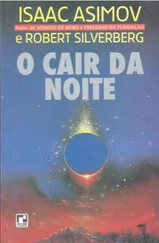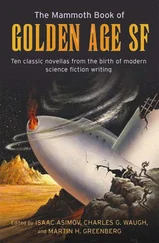Edward Hoch - Isaac Asimov's Worlds of Fantasy. Book 6 - Mythical Beasties
Здесь есть возможность читать онлайн «Edward Hoch - Isaac Asimov's Worlds of Fantasy. Book 6 - Mythical Beasties» весь текст электронной книги совершенно бесплатно (целиком полную версию без сокращений). В некоторых случаях можно слушать аудио, скачать через торрент в формате fb2 и присутствует краткое содержание. Жанр: Фантастика и фэнтези, на английском языке. Описание произведения, (предисловие) а так же отзывы посетителей доступны на портале библиотеки ЛибКат.
- Название:Isaac Asimov's Worlds of Fantasy. Book 6: Mythical Beasties
- Автор:
- Жанр:
- Год:неизвестен
- ISBN:нет данных
- Рейтинг книги:5 / 5. Голосов: 1
-
Избранное:Добавить в избранное
- Отзывы:
-
Ваша оценка:
- 100
- 1
- 2
- 3
- 4
- 5
Isaac Asimov's Worlds of Fantasy. Book 6: Mythical Beasties: краткое содержание, описание и аннотация
Предлагаем к чтению аннотацию, описание, краткое содержание или предисловие (зависит от того, что написал сам автор книги «Isaac Asimov's Worlds of Fantasy. Book 6: Mythical Beasties»). Если вы не нашли необходимую информацию о книге — напишите в комментариях, мы постараемся отыскать её.
Isaac Asimov's Worlds of Fantasy. Book 6: Mythical Beasties — читать онлайн бесплатно полную книгу (весь текст) целиком
Ниже представлен текст книги, разбитый по страницам. Система сохранения места последней прочитанной страницы, позволяет с удобством читать онлайн бесплатно книгу «Isaac Asimov's Worlds of Fantasy. Book 6: Mythical Beasties», без необходимости каждый раз заново искать на чём Вы остановились. Поставьте закладку, и сможете в любой момент перейти на страницу, на которой закончили чтение.
Интервал:
Закладка:
Isaac Asimov's Magical Worlds of Fantasy. Book 6: Mythical Beasties
Centaur
The horse was tamed about 2000 B.C. by the nomads of the Central Asian steppes, and when it drew a light chariot bearing a driver and an armed warrior, it proved a fearsome weapon. The horsemen conquered the entire civilized world from India to Egypt, and held their rule until the dominated people learned the use of the horse themselves.
By 800 B.C.. the Medes of western Asia had bred horses large enough to carry men on their backs, and that combination was even more fearsome. To farmers who encountered horsemen for the first time this combination of men and animals must have seemed monstrous.
The early Greeks were not horsepeople, for their mountainous terrain and narrow valleys were not conducive to either the breeding or the use of horses. In northern Greece, however, there was the plain of Thessaly, and there horses and horsemen made their appearance.
The fearful Greeks must have first seen them as horsehuman combinations, and so was born the myth of the ' 'centaur,'' finally portrayed in Greek art as a creature with the head and torso of a human being replacing the head and neck of a horse. For the most part, the Greeks pictured the centaurs as barbarians-crude, wild. lawless, easily made drunk, and, in that state, prone to be lascivious. Perhaps' that is how they saw the real Thessalian horsemen.
At least one centaur, however, named Chiron, was wise, Edward D. Hoch noble, and learned. He was the tutor of Hercules and Achilles, among others.
The centaur of the story that follows falls between these two extremes.
Centaur Fielder For The Yankees
by Edward D. Hoch
Let me tell you. there was a time not so long ago when a centaur would have been kept in a zoo or a circus. He certainly wouldn't have been allowed to play major league baseball. But times have changed, and we're more tolerant of people who are different. I suppose that's why Mark Eques ended up playing baseball for the New York Yankees.
But I'd better tell it from the beginning.
The idea of centaurs-creatures having the head, trunk and arms of a man and the body and legs of a horse-had been around since Ovid's Metamorphoses and Homer's lliad. It was Lucretius who declared that the creature must be mythical because horses reach maturity before humans, and are full-grown at three years of age. The horse would die fifty years before the man. All mis is true enough, but when Professor Hagger of Columbia University returned from me Greek island of Antikythira with a young living centaur early in the 22nd century, a great many preconceptions changed.
Like most everyone else in America, I'd equated centaurs with unicorns and other mythical beasts. Seeing one live on the evening news took some getting used to. Hagger christened the young creature Mark Eques, and set about educating him. It was quite a story for a month or two, during the slow news days of summer, but by fall Professor Hagger and his discovery had faded from view. Mark Eques was living on a farm in upstate New York, staying pretty much out of the public eye. A few years passed before we heard about him again, and this time it was an announcement by Professor Hagger that Mark was about to enter Columbia University, having passed the traditional college entrance examinations. He was even entitled to special consideration by the university, since the government had ruled that Mark was a handicapped human being and not any sort of monster.
Mark found college to be difficult, and by me end of his first year it appeared he was ready to drop out. That was when Roscoe Greene, a scout for the New York Yankees baseball team, contacted Mark, and when I had my first meeting with the boy centaur.
I was a sportswriter on a Boston paper at the time, and I became interested in Mark when he attempted to run in the Boston marathon, They couldn't officially bar him from it, but they did me next best thing. They set up a special category for centaurs. Since he was the only known centaur on earth, he had no one to compete against but himself. There was no point in running at all, and on Patriots' Day he didn't even bother to appear.
But baseball was a different story.
Mark Eques had been ruled a handicapped person, and under federal regulations in those early years of the 22nd century, handicapped persons were allowed to play professional sports, so long as their handicap did not prevent them from performing their duties. I had to hand it to Roscoe Greene for coming up with that one.
An old girl friend in the Yankee front office tipped me off to what was happening, and I drove all night to reach the Dutchess County farm where Mark was living with Professor Hagger after completing his first year at Columbia. It was horse country, with the roads bordered on either side by neat white fences that extended back over the rolling hills as far as the eye could see.
As I pulled into the Hagger farm shortly after nine in the morning I saw that Roscoe Greene had arrived first. He stood at the fence speaking with Mark Eques. When he saw me he cursed, not too softly. "What in hell are you doing here, Danny? Go back to Boston where you belong!"
"Hello, Roscoe. Glad to see you too. Is it true the Yankees are about to sign Mark here to a position in center field?'* Mark Eques, his hairy chest bare to the morning sun, grinned boyishly and pawed the grass with his front hoof.
"I'm gonna play in the big leagues," he announced proudly.
"What does Hagger say about all this?" I wanted to know.
"Why don't you ask him?" Greene answered smugly.
Professor Hagger must have observed my arrival, because he came out of the farmhouse to join us. When Greene introduced me. he said, "So the press is onto this already!
You don't waste any time."
"Danny's a go-getter." Green confirmed. "One of these days he'll cover a story before it happens."
"Has he ever played ball?" 1 asked the professor. "Is he any good at it?"
"His family apparently played a version of baseball,'* Hagger responded. "He remembers it as a child."
"I'm good," Mark Eques answered for himself. "They wouldn't let me run in the marathon but they can't stop me now."
"He has tremendous speed in the outfield," Professor Hagger confirmed. "Virtually nothing gets by him. His baserunning is superb too. We're still working on his hitting."
"What do you think, Roscoe?" I asked Greene.
"I think he has unlimited potential. Young, clean-cut- people will flock to the games just to see him play."
"The other managers will never allow it," I predicted.
"We've already got the courts behind us. Let the other clubs go out and hire their own centaur."
Mine was the first exclusive interview with Mark Eques on his signing with the Yankees, and for a week or two it wa§ quite a story. The other major league clubs grumbled, of course, until New York agreed to share with them the additional revenues Mark's appearance was expected to generate.
So, after a month of hoopla and further training, the centaur took the field for a July 4th doubleheader against the Boston Red Sox. I was there, of course, covering Boston on the road as I usually did, but so was just about every sportswriter in the country, along with all the TV and satellite people. It's a wonder there was any space left in the Yankees' new domed stadium for just plain fans.
Mark Eques galloped onto the field wearing his Yankee shirt and the crowd went wild. He removed his hat while the National Anthem was played, and then continued on into center field. The first inning was a disappointment for the fans and television cameras, with not a single ball making it out of the infield. But in the top of the second Mark showed his stuff, charging across center field to nab a well-hit grounder and peg it to first base for the out. The crowd went wild for the second time.
Читать дальшеИнтервал:
Закладка:
Похожие книги на «Isaac Asimov's Worlds of Fantasy. Book 6: Mythical Beasties»
Представляем Вашему вниманию похожие книги на «Isaac Asimov's Worlds of Fantasy. Book 6: Mythical Beasties» списком для выбора. Мы отобрали схожую по названию и смыслу литературу в надежде предоставить читателям больше вариантов отыскать новые, интересные, ещё непрочитанные произведения.
Обсуждение, отзывы о книге «Isaac Asimov's Worlds of Fantasy. Book 6: Mythical Beasties» и просто собственные мнения читателей. Оставьте ваши комментарии, напишите, что Вы думаете о произведении, его смысле или главных героях. Укажите что конкретно понравилось, а что нет, и почему Вы так считаете.








